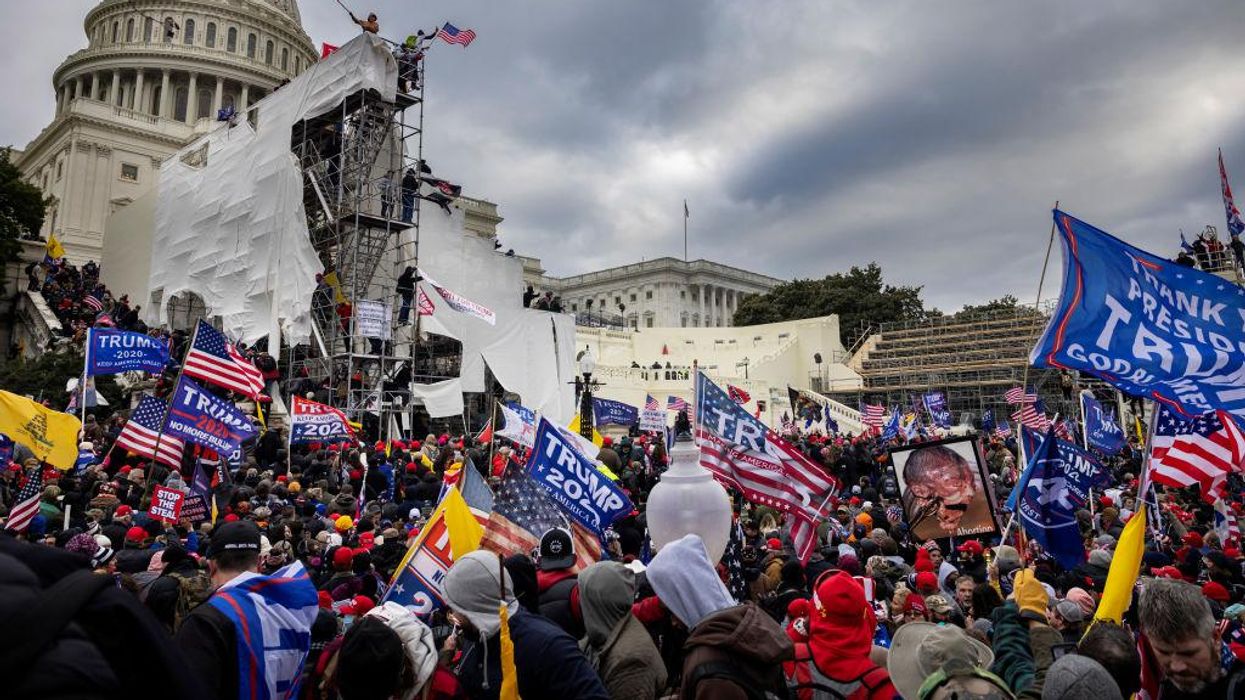Nearly five months ago, insurrectionists stormed the Capitol, threatened the lives of lawmakers and attempted to subvert American democracy. But GOP opposition is likely to stonewall an investigation into this attack.
Failure to approve a commission investigating the events of Jan. 6 would signal significant dysfunction and polarization in Congress, further eroding the public's faith in the political system.
Following the House's bipartisan vote to approve an investigation commission last week, the Senate is anticipated to bring the legislation to the chamber floor Thursday. But ahead of the vote, many Republicans remained opposed or undecided, casting uncertainty on the prospects of meeting the 60-vote threshold needed to overcome a procedural test.
Co-sponsored by Democratic Rep. Bennie Thompson of Mississippi and GOP Rep. John Katko of New York, the bill would establish a commission consisting of 10 members, evenly appointed by the two parties' leadership in the House and Senate. Modeled after the commission that investigated the Sept. 11 terrorist attacks, this body would have the power to receive evidence and issue subpoenas.
The commission would be required to hold public hearings and submit a final report to Congress and President Biden by the end of the year.
Despite opposition from GOP House leaders including Minority Leader Kevin McCarthy, 35 Republicans joined Democrats in approving the commission last Wednesday. Senate Minority Leader Mitch McConnell has also come out against the probe, putting pressure on Republicans to fall in line with party leadership.
Failing to receive support from both major parties would be a noteworthy departure from historical precedent. Following both Watergate and 9/11, Congress overwhelmingly supported establishing investigative committees.
Ambassador Tim Roemer, a Democrat and former member of Congress who served on the Sept. 11 commission, emphasized during a press call Thursday morning that the creation of a Jan. 6 commission should not be a partisan issue.
"This is not about left or right. It's about right and wrong. It was wrong for people to violently attack and assault our police officers, our legislators and custodians and staff, to disrupt a peaceful transfer of power, plain wrong," Roemer said during the call, which was organized by the nonpartisan reform group Issue One. "It's not about Democrats and Republicans. It's about the constitution and our Capitol, and the sanctity of that Capitol."
Republican Chuck Hagel, a former senator and secretary of defense during President Barack Obama's first term, also participated in the call and echoed Roemer's remarks. Hagel said all senators should vote according to their oath of office, not political party or whomever the president is at the time.
"In representative government, if you stay close to your oath of office and don't get things confused, that's your North Star," he said. "It's not a Republican or Democratic vote, it's an American vote."
If the Jan. 6 commission does receive enough votes to pass, it could be thanks to a last-minute amendment pushed by Sen. Susan Collins. The Maine Republican's primary sticking point is making sure the chair and vice chair of the commission jointly appoint the staff, rather than do so separately. If the bill is approved with Collins' amendment, it would be sent back to the House for reconciliation.
But the more likely scenario is that the vote will be subject to the first Republican filibuster of this legislative session. Utilizing the procedural move, which was conceived as a way to ensure the majority doesn't run roughshod over the minority, would give progressive Democrats fodder to reignite their efforts to eliminate what has become merely a blocking tactic rather than a tool for forcing compromise.
Notably, Sens. Kyrsten Sinema of Arizona and Joe Manchin of West Virginia, the two Democrats largely responsible for the filibuster remaining intact, issued a joint statement Tuesday in support of the Jan. 6 commission. They called it "a critical step to ensuring our nation never has to endure an attack at the hands of our countrymen again."
"We implore our Senate Republican colleagues to work with us to find a path forward on a commission to examine the events of January 6th," Sinema and Manchin said.
Whatever the Senate decides Thursday, Hagel said, "history is going to reflect on this day pretty clearly." Not having Congress involved in investigating the insurrection would be "a terrible blackmark" on the institution, he added.




















Trump & Hegseth gave Mark Kelly a huge 2028 gift